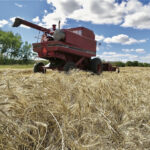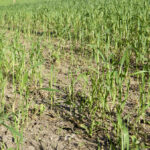Farmers who contracted to deliver a portion of this year’s crop at a specific price but can’t fill it because drought cut production have a problem. Depending on the contract they are obliged to either find the equivalent grain elsewhere and deliver it, or pay the grain company what it costs to acquire the grain.[...]

















